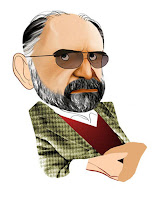Revisiting the Debate on Qurbani

Choosing between Diverse Options in Fiqh. Is our fate in the otherworld linked to following particular juristic school in a given case? Is animal sacrifice ( qurbani ) mandatory for every individual who can afford it ( sahibi Istita'at )? Is the popular understanding of qurbani (especially Hanafi one) based on certain reading of prophetic traditions uncontested in Islamic tradition? No is the answer to all these questions. Let us explore why. And our inquiry would be relevant to other important issues that often divide us, declare us guilty or cause us to take positions that we are not sure, at some level, we should be identifying with. It seems that more careful attention to underlying motivations or rationale of what is called Islamic law (more appropriately, human understanding of Revealed Law, Fiqh) would help all Muslims, irrespective of theological or juristic affiliations including reformists/modernists and their traditionalist critics, to...



